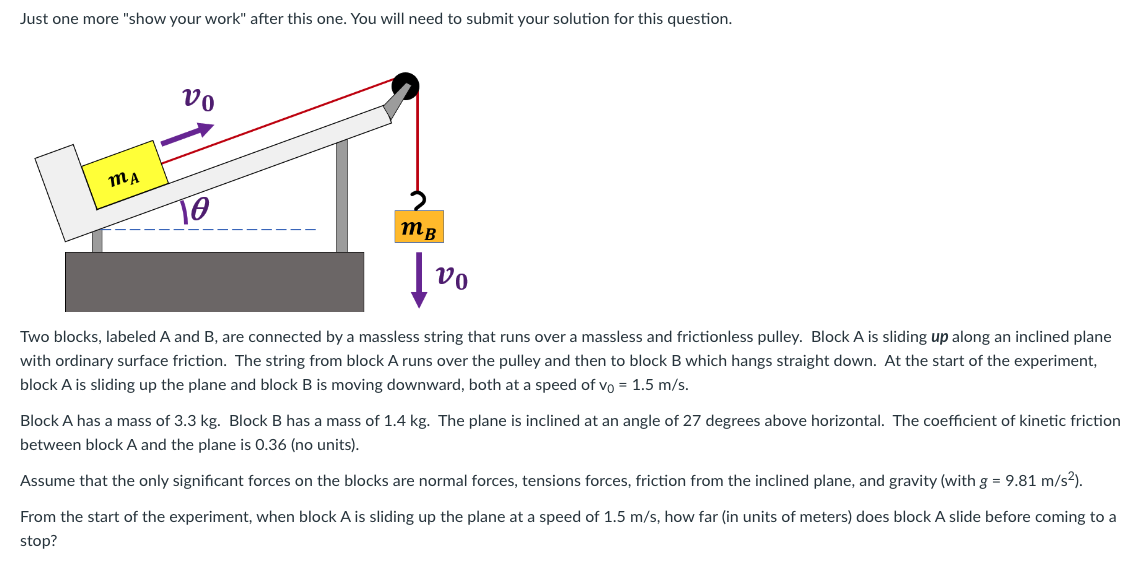Two blocks, labeled A and B, are connected by a massless string that runs over a massless and frictionless pulley. Block A is sliding up along an inclined plane with ordinary surface friction. The string from block A runs over the pulley and then to block B which hangs straight down. At the start of the experiment, block A is sliding up the plane and block B is moving downward, both at a speed of v0 = 1.5 m/s. Block A has a mass of 3.3 kg. Block B has a mass of 1.4 kg. The plane is inclined at an angle of 27 degrees above horizontal. The coefficient of kinetic friction between block A and the plane is 0.36 (no units). Assume that the only significant forces on the blocks are normal forces, tensions forces, friction from the inclined plane, and gravity (with g = 9.81 m/s2 ). From the start of the experiment, when block A is sliding up the plane at a speed of 1.5 m/s, how far (in units of meters) does block A slide before coming to a stop? Just one more "show your work" after this one. You will need to submit your solution for this question.
